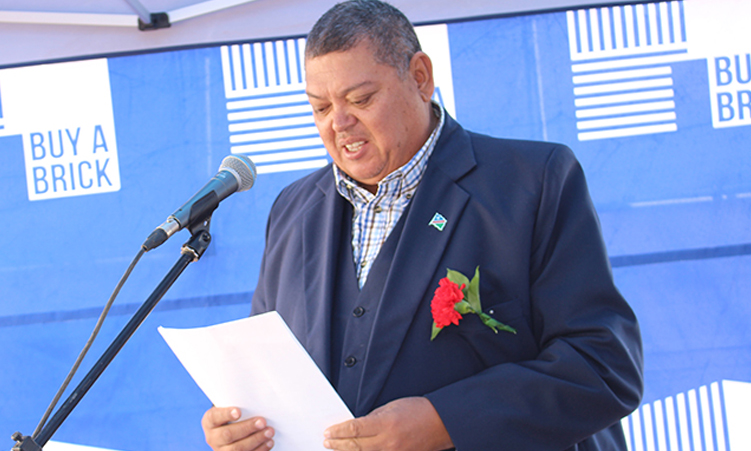The ministers of fisheries and marine resources and labour, industrial relations and employment creation have decided to review the government’s employment redress programme (Gerd).
This decision came after the ministries had a consultation meeting with ex-fishermen and their employers at Walvis Bay on Thursday.
Fisheries minister Derek Klazen on Friday said the exercise is a first for Namibia and comes with trials.
He said the meeting also revealed there were initially fewer than 2 000 ex-fishermen in the group who lost their jobs, but more have joined the group, claiming they were among the Okapale fishermen.
“About 500 people resigned from Cavema Fishing. There were also workers from Pemba Bay, a vessel that was not working any more.
“We also had 450 factory workers, consisting of women and men under the care of the National Fishing Corporation of Namibia (Fishcor).
“Together we had more than 1 000 employees. When the expression of interest with companies went out, we tried to put the women in factories.
“This group embarked on a mass demonstration and handed petitions to these companies and the ministry, of which responses were given onThursday.
“We usually talk to the fishermen committees, but we wanted to meet with the workers themselves,” Klazen said.
He said the companies under the programme were asked to employ the group on boats, at factories or in any job related to the fishing industry, and were allocated quotas according to negotiations and agreement with the ministry on a certain rate.
“What we realised is that the rate is not sufficient for the companies to charter or buy their own boats. The companies realised that although they need boats, it does not make economic sense to bring in boats, because the amount of quota they received is not enough,” the minister said.
Klazen said some companies also complained that their quota only allows them to pay employees a certain salary, with some fishermen paid while not working because of the unavailability of vessels and factories.
“The fishermen are unhappy that they only earn about N$4 000 or N$5 000 when they are home or working at factories, while those on vessels earn about N$16 000 plus some benefits.
“There are not enough boats. They are called when positions arise and are working on a rotation basis. We will go back and discuss our findings and renegotiate with the companies.
“We cannot live with this unhappiness. I ask the affected people to give us an opportunity to get our findings together and work on strategies,” Klazen said.
He commended the participating companies for trying hard to make the programme work, but noted that the ministry has the right to withdraw its agreement with those who are failing to perform, and to consider which companies provide proper employment.
Labour minister Utoni Nujoma said the ministries are aware of the fact that all Namibians are entitled to decent work and a decent standard of living.
“We also employ other Namibians. While these ones were striking in 2015, others were employed. It is a challenge for companies to employ these workers now.
“There are not enough resources, and it is impossible for the government to provide more quota. If we had the resources, we could solve the problem overnight.
“The government cannot overlook the scientific findings and end up without resources. The sardines are already wiped out because of overfishing by foreign trawlers.
“If we are not careful with hake and horse mackerel, the same will happen. We probably have to look at companies with available fishing boats and consider them,” he said.
Participating companies were warned not to victimise the workers who spoke out.
Stay informed with The Namibian – your source for credible journalism. Get in-depth reporting and opinions for
only N$85 a month. Invest in journalism, invest in democracy –
Subscribe Now!










